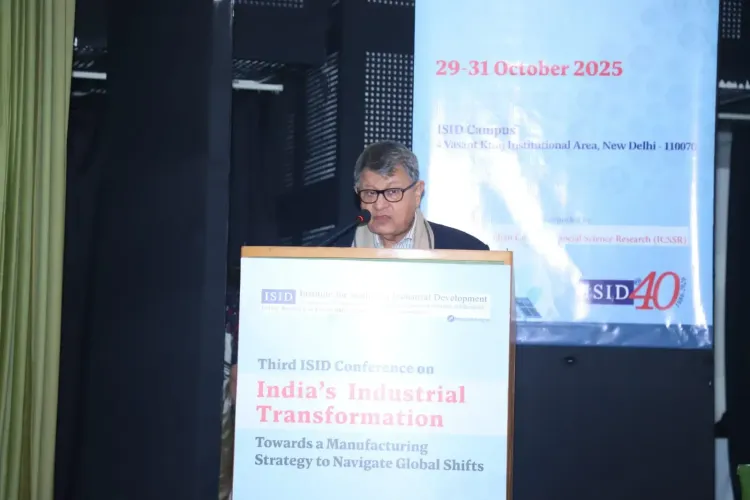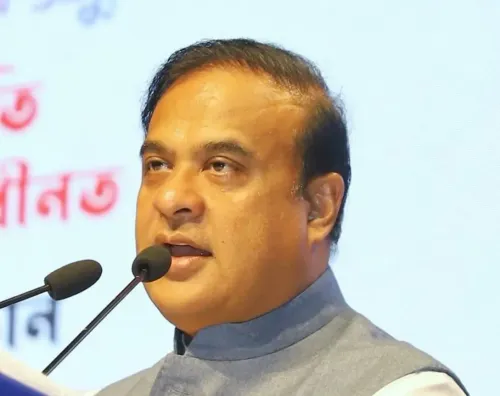Should India Lead or Follow in the Next Industrial Revolution?

Synopsis
Key Takeaways
- India must lead in the industrial revolution.
- Focus on inclusive and adaptable policies.
- Strengthen supply chains and skill ecosystems.
- Promote small and medium enterprises.
- Address geopolitical challenges proactively.
New Delhi, Oct 29 (NationPress) NITI Aayog's Vice Chairman Suman Bery stated on Wednesday that India should aim to lead, rather than follow, in the upcoming industrial revolution characterized by sectors like green hydrogen, electric mobility, semiconductors, and advanced materials.
During a conference organized by the Institute for Studies in Industrial Development (ISID), Bery remarked that while India can learn from China's industrial growth, it must carve its own path to progress.
He asserted that India's forthcoming industrial policy should emphasize inclusivity and adaptability instead of merely copying foreign models.
He stressed the necessity of developing strong supply chains, maintaining quality standards, and fostering skill ecosystems, allowing smaller enterprises to grow and integrate into global production networks.
Bery pointed out that India's industrial strategy should be driven by state and district initiatives, focusing on creating regional industrial clusters rather than a centralized approach from New Delhi.
He acknowledged that while India has made significant strides in large-scale reforms, the next advancement will hinge on integrating small and medium enterprises into both global and domestic value chains through standards, logistics, and skill alignment.
Bery emphasized that this industrial transformation should lead to productive jobs and increased incomes for the Indian population.
ISID Director and Monetary Policy Committee member Nagesh Kumar also emphasized that industrial transformation must create productive employment opportunities and boost incomes.
"The manufacturing sector has the most substantial backward and forward linkages among productive sectors, making it a pivotal driver for both growth and job creation," he explained.
Kumar warned that geopolitical uncertainties, particularly due to increased US tariffs, present challenges for India's labor-intensive exports.
He also highlighted the importance of leveraging India's large domestic market while enhancing integration with global supply chains to diversify export markets through free trade agreements (FTAs).










